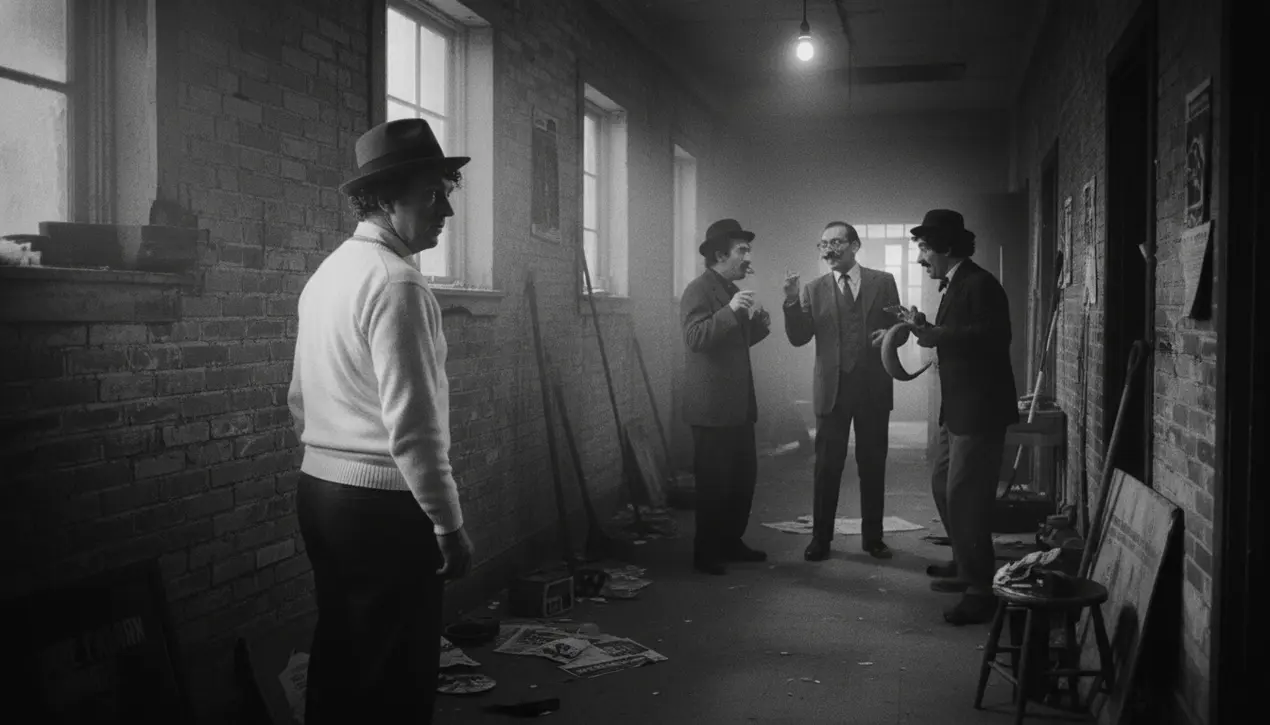
Entertainmentreviews
When a Three Stooges Member Met the Marx Brothers
BR
Brian Miller
4 hours ago7 min read7 comments
Picture this: a smoky backstage corridor in some long-forgotten vaudeville house, the air thick with the ghosts of laughter and the palpable tension of rival troupes. It’s here, in the interstitial spaces of American comedy, that the paths of two legendary brother acts—the Marx Brothers and the Three Stooges—almost, but never quite, converged in a meaningful way.For decades, fans and critics have played the comparison game, lining up these Jewish brothers from New York like competing orchestras, noting their shared vaudevillian roots and their seismic impact on the golden age of Hollywood slapstick. Yet, despite operating in the same comedic ecosystem for years, their worlds remained parallel lines, destined never to truly meet on screen in any official capacity.The closest we ever got to a crossover was a fleeting, almost spectral appearance by Curly Howard of the Stooges in the 1930 Marx Brothers film ‘Horse Feathers. ’ But don’t go scrambling for your Blu-ray collection expecting a classic Curly spin or a “woob-woob-woob”; his role was that of an uncredited, background college student during the frantic football game finale, a ghost in the machine of Groucho and Chico’s anarchic world.This wasn't a meeting of minds, but a collision of cosmic dust, a testament to the factory-like nature of studio productions at the time where contract players floated between sets. The Marx Brothers, with their linguistic dexterity and surreal, top-down anarchy aimed at dismantling the establishment, were composing a complex jazz riff.Groucho’s verbal puns and Harpo’s silent, chaotic pantomime were instruments of intellectual rebellion. Meanwhile, the Three Stooges were the kings of the physical, a percussive symphony of pokes, slaps, and nyuk-nyuks that resonated from the bottom up, their comedy a visceral, working-class release.To imagine them sharing a scene is to imagine two different musical genres trying to occupy the same measure; the rhythm would be all wrong. This near-miss speaks volumes about the compartmentalization of comedy itself, the distinct lanes carved out by studio heads who understood brand management long before it was a buzzword. It’s a piece of trivia that plays like a lost B-side—a what-could-have-been that ultimately highlights why these two acts remain so distinctly, gloriously separate in the canon of laughter.
#featured
#Three Stooges
#Marx Brothers
#comedy teams
#film history
#Hollywood
#vaudeville
#crossover
Stay Informed. Act Smarter.
Get weekly highlights, major headlines, and expert insights — then put your knowledge to work in our live prediction markets.
Related News
Comments
Loading comments...
© 2025 Outpoll Service LTD. All rights reserved.